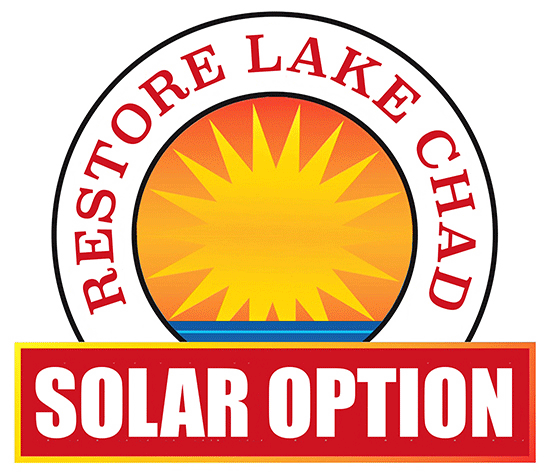Solar Option Group
Difficult times continue for the people and nations of the Lake Chad Basin. Along with the ongoing impacts of climate change and food, social and economic insecurity, there has been increasing political instability in the region. These factors have impeded any progress on restoring Lake Chad.
The Solar Option Group has continued its advocacy role. We believe there is a feasible, affordable approach to stabilizing Lake Chad. Since the 2018 International Conference on Saving Lake Chad, advancements in solar technology, battery storage, and power transmission technologies have continued. For example, as of 2023, the cost of utility scale solar power has fallen to $0.03 per kilowatt-hour. The costs of utility-scale lithium-ion battery systems have dropped to a range of $150 per kilowatt-hour. Smart-grid technology can be used to supply surplus electrical power to the CAR and Chad.
These technology developments provide a basis for an updated and enhanced Lake Chad engineering plan. However, such a project can go forward only with the cooperation and support of the nations of the Lake Chad Basin.
SOLAR OPTION SUMMARY
● Lake Chad was once the most important freshwater ecosystem in the Sahel, providing sustenance to 30 million people living in Africa’s central sub-Sahara.
● During the last 50 years, it has shrunk to less than 10% of its former size, precipitating a major humanitarian crisis.
● The Lake Chad Basin Commission, representing the countries surrounding the lake, has been studying the problem for years, seeking a viable approach for Inter-Basin Water Transfer from the Ubangi River to replenish the Lake.
● On February 26-28, 2018, the Commission convened African decision-makers in Abuja at the International Conference on Lake Chad.
● The conference theme was: “Saving the Lake Chad to revitalize the Basin’s ecosystem for sustainable livelihood, security and development.” The goal is to develop consensus on solutions to save the Lake.
● Dramatic reductions in the cost of generating solar power, along with advanced grid-scale lithium-ion energy storage batteries, make The Solar Option the best choice:
○ Approximately 10% of the cost of a
hydroelectric dam.
○ No Ubangi dam, no flooding and displacement
of villages and people.
○ No disruption of fisheries and agriculture.
○ No significant Ubangi River water loss.
○ Staged construction allows early start of water
pumping, increasing Lake Chad about
3000 sq km in the first year.
○ Renewed Lake Chad ecosystem.
○ Increased agriculture, food security and
economic opportunities.
○ Infrastructure development: roads
and electrification.
○ A positive future to counteract civil unrest.
